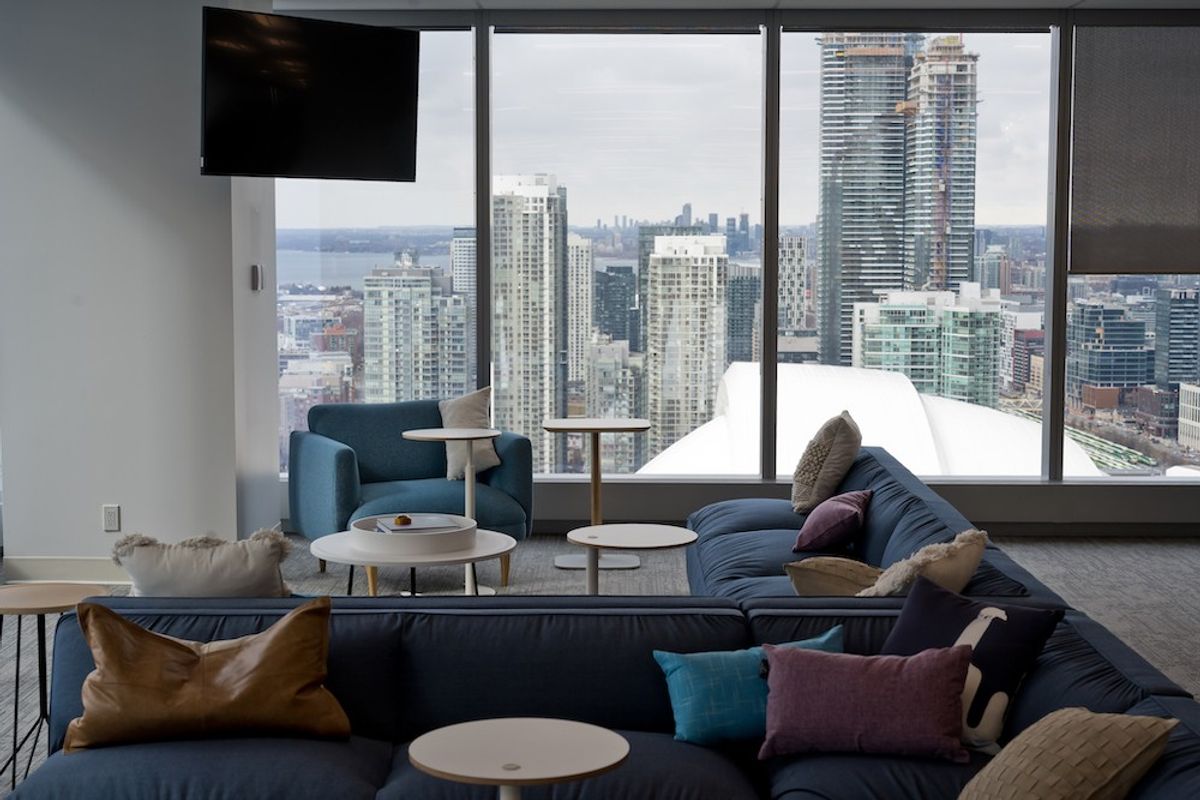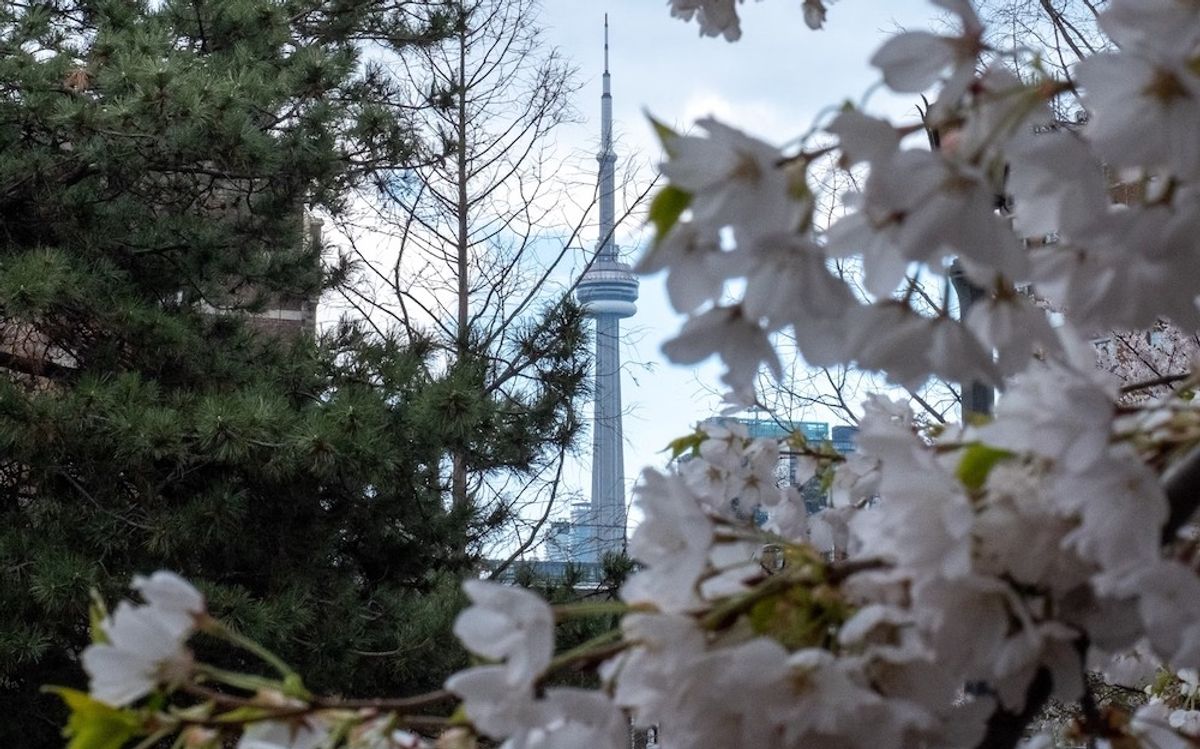Our weekly roundup of real estate news from Toronto, Canada, the U.S., and around the world ending Sept. 1, 2017.
Toronto
Average Greater Toronto House Now Back Below $1 Million (HuffPost)
What goes up must come down, the saying goes. But in Toronto's housing market, it may not come down enough to satisfy strained homebuyers.
With a real estate slowdown gripping the city, Greater Toronto's average house price has fallen back below $1 million.
Toronto-Dominion’s rate of growth in mortgages slightly behind rivals (MortgageBrokerNews.ca)
Toronto-Dominion’s pace of growth in mortgages still lags behind rivals, rising 1.3 per cent from a year earlier, even as Canada’s real estate market has boomed.
The bank has stated that it’s focusing more on selling home-equity credit lines, unsecured personal loans, and other higher profit products. Margins in Canadian banking rose 4 basis points to 2.75 per cent from Q2, the highest since 2015.
Lunch in Trinity Bellwoods with Brad Lamb (The Toronto Star)
This is one in an occasional series of high profile people sharing their picnic essentials.
Real estate giant Brad Lamb’s ideal picnic includes indulgent dishes sourced from his favourite snacking joints from Queen E. to Queen W.
Canada
Hurricane Harvey's lesson for Canadian real estate: Don Pittis (CBC News)
This week, Hurricane Harvey offered another little lesson in market forces. It's a lesson that helps us think about Canadian real estate.
Market theory tells us that people who wanted to protect their property from the hurricanes and floods that plague the Gulf Coast should have had insurance.
Housing minister eyes possible cut to annual rent increases (Vancouver Sun)
Selina Robinson said the current formula, which caps annual allowable rent increases to two per cent plus the rate of inflation, will be under review within her ministry as she tries to find ways to make life more affordable for renters.
“I’m very curious about those numbers and how they were achieved,” she said in an interview.
Rent in the city, own in small towns: Canada’s new real estate trend (Global News)
With prices sky-high in some of Canada’s largest cities and real estate markets softening across the country, many city dwellers are choosing to rent the home where they live and buy properties — especially in smaller towns — as an investment.
When Allison Humphries started working from home three years ago and realized her tiny Toronto condo couldn’t be both her home and her office, she decided to try to rent it out.
USA
Post Hurricane Harvey, U.S. Lumber Import Trade Agreement Needed in Massive Rebuild Efforts (World Property Journal)
The National Association of Home Builders chairman Granger MacDonald, issued the following statement in the wake of Hurricane Harvey and its potential effects on lumber prices as Gulf Coast residents prepare to rebuild after the catastrophic storm.
"Our thoughts and prayers are with the people of my great state of Texas and our friends in Louisiana as they suffer through the extreme flooding and other damage caused by Hurricane Harvey. Yet even as they cope with the immediate effects of the disaster, many are already looking to the future and the long rebuilding process ahead.
Mortgage rates continue their month-long slide (The Washington Post)
Mortgage rates moved lower for the fourth week in a row as investors grew anxious about North Korea, Hurricane Harvey and the looming federal debt ceiling.
According to the latest data released Thursday by Freddie Mac, the 30-year fixed-rate average tumbled to 3.82 percent with an average 0.5 point. (Points are fees paid to a lender equal to 1 percent of the loan amount.) It was 3.86 percent a week ago and 3.46 percent a year ago.
How climate change could turn US real estate prices upside down (The Guardian)
If Florida gleaned anything from Hurricane Andrew, the intensely powerful storm that tore a deadly trail of destruction across Miami-Dade County almost exactly 25 years to the day that Hurricane Harvey barrelled into the Texas coastline, it was that living in areas exposed to the wrath of Mother Nature can come at a substantial cost.
At the time the most expensive natural disaster ever to hit the US, Andrew caused an estimated $15bn in insured losses in the state and changed the way insurance companies assessed their exposure to risk for weather-related events.
International
Asian Investment in Global Real Estate Picks Up Steam in 2017 (World Property Journal)
According to the latest research from CBRE, global real estate continues to serve as an attractive asset class for investors, with Asian outbound investment into the sector posting significant year-on-year gains in the first half of 2017.
Approximately $45.2 billion of Asian outbound capital was directly invested into global property in the first half of 2017, representing a 98.4% rise year-on-year against $22.8 billion allocated in the first half of 2016.
Rents go up across most of England and Wales, with landlords tax change being blamed (Property Wire)
Average rents increased in most areas of England and Wales in July, up an average of 0.22% month on month and 3.1% year on year to £874, according to the latest index.
A fall in stock available to rent is causing rental values to rise with nine out of 10 regions now having seen an increase in the last 12 months, according to the Your Move buy to let index.
At least 12 dead, 25 trapped after building collapse in India (Global News)
A five-story building collapsed in India’s financial capital of Mumbai, killing 12 people and injuring 14 others on Thursday, after torrential rains lashed the country’s west. Another 25 people are feared trapped in the debris.
Rescue workers, police and residents helped pull 13 people out of the rubble and were looking for those buried in the huge mound of mud, concrete slabs and twisted steel girders. The residential building is located in a congested lane of the Bhendi Bazaar area in southern Mumbai.





















